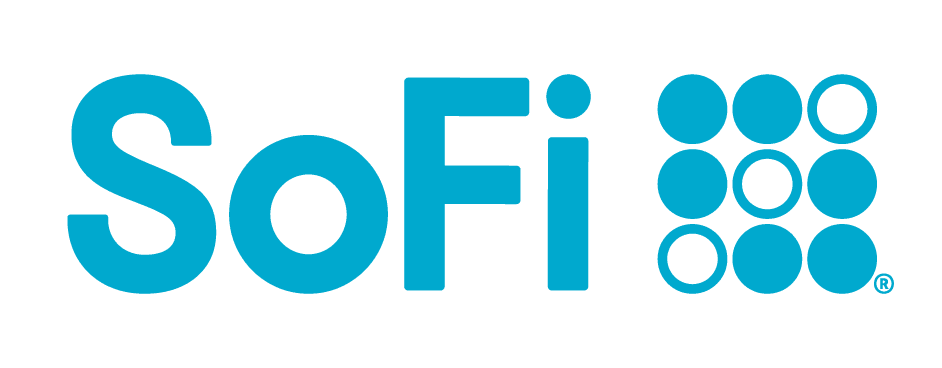Conventional mortgage loans are an important financial tool. They play a crucial role for people buying a home.
Understanding how they work will help you make an informed choice.
What is a Conventional Mortgage Loan?
A conventional mortgage is a home loan that isn’t backed by a government agency. Instead, it follows guidelines set by Fannie Mae and Freddie Mac.
These loans work by allowing you to borrow money from private lenders to purchase a home, which you then pay back over time with interest.
How It Works
- You apply for a loan with a private lender, like a bank or a company such as Axos
- The lender evaluates your financial health, including credit score, income, and debts
- If approved, you receive the loan and agree to repay it over a set period, typically 15 or 30 years
Conventional Mortgages – Best Options
| Company | Overall Rating | Interest | Loan amount | Loan Term | |
|---|---|---|---|---|---|

| 1,179.00% – 2,084.00% | $7,000 – $50,000 | 3 Years – 6 Years | Explore more | |
recommended

| 8.99% – 25.81% | $5,000 – $100,000 | 2 Years – 7 Years | Explore more | |

| 10.49% – 12.49% | $1,000 – $100,000 | 1 Year – 5 Years | Explore more |
| Company |
|---|

|
recommended

|

|
| Get Started |
|---|
| Explore more |
| Explore more |
| Explore more |
| Company | Overall Rating | Interest | Loan amount | Loan Term | Get Started |
|---|---|---|---|---|---|

| 1,179.00% – 2,084.00% | $7,000 – $50,000 | 3 Years – 6 Years | Explore more | |
recommended

| 8.99% – 25.81% | $5,000 – $100,000 | 2 Years – 7 Years | Explore more | |

| 10.49% – 12.49% | $1,000 – $100,000 | 1 Year – 5 Years | Explore more |
Conventional mortgage loans, like those offered by Axos, can be an excellent path to homeownership for many Americans. By understanding how they work, their requirements, and how they compare to alternatives, you’re taking a significant step towards making an informed decision.
Remember, the best loan for you depends on your individual circumstances. Take the time to shop around, compare offers, and choose the option that aligns best with your financial goals and situation.
Conventional Mortgage Loan Requirements
The most common requirements include:
- Credit Score – Typically, a minimum of 620 is required. Think of this as your financial report card.
- Down Payment – As low as 3% for first-time homebuyers, but usually 5-20%. This is your skin in the game.
- Debt-to-Income (DTI) Ratio – Usually, no more than 50% of your income should go to debts.
- Private Mortgage Insurance (PMI) – Required if your down payment is less than 20%.
Remember, these are general guidelines. Lenders like Axos may have slightly different requirements, so always check with your chosen lender for specifics.
It’s always wise to shop around and compare offers from multiple lenders to find the best conventional mortgage rates and terms for your unique financial situation.
Required Documents for a Mortgage Loan
When you want to buy a house, you’ll need to show some papers to the bank. These papers help the bank decide if they can lend you money. Here’s what you’ll need:
- Proof of who you are – A photo ID, like a driver’s license or passport
- Proof of your income – Pay stubs from the last few months
- Proof of your savings – Bank statements showing your money
- Information about your debts – List of any money you owe, like car loans or credit cards
- Employment history – Names and addresses of where you’ve worked
- Rent payment history – Proof that you pay your rent on time, if you’re renting now
- Gift letter – If someone is giving you money to help buy the house, you need a letter from them
- Investment account statements, if you have any
The bank can ask for more papers. It’s best to get these ready early. This makes the process of buying a house easier and faster.
Who May Qualify
- People with good credit scores. If your score is 620 or higher, you’re in good shape.
- Those with steady jobs. Lenders like to see at least 2 years of regular paychecks.
- Folks with some savings. Having 3-6 months of expenses saved makes lenders feel safe.
- People who don’t owe too much. Your debts should be less than 43% of your income.
- Those who want to buy a normal house. A typical single-family home is easier to finance.
- Buyers who can pay some money upfront. A down payment of 3-20% is usually needed.
- People who earn enough to cover monthly payments. Your housing costs should be less than 28% of your income.
Remember, these are just general ideas. Each person’s situation is different. It’s best to talk to a lender to know for sure.
The Role of Freddie Mac and Fannie Mae
Freddie Mac is the nickname of the Federal Home Loan Mortgage Corporation. Fannie Mae instead is the Federal National Mortgage Association.
Both are government-sponsored enterprises. They buy loans from lenders, package them, and sell them to investors.
This process:
- Frees up lenders’ funds to make more loans
- Establishes standards for conventional loans
- Keeps the mortgage market liquid and stable
Conforming loans are mortgages adhering to Fannie and Freddie’s standards.
Pros and Cons of Conventional Mortgage Loans
Flexibility: Like a Swiss Army knife, conventional loans come in various types to suit different needs.
No upfront mortgage insurance: If you put down 20% or more, you avoid PMI altogether.
Potentially lower costs: Especially for those with excellent credit scores.
Higher loan limits: You can borrow more compared to some government-backed loans.
Pros
Stricter requirements: You need a higher credit score and often a larger down payment.
PMI for low down payments: This extra cost can add up if you put down less than 20%.
Less forgiving with financial hiccups: Unlike some government loans, conventional loans may be harder to qualify for if you’ve had recent financial difficulties.
Cons
Alternatives to Conventional Mortgages
- FHA Loans: The Federal Housing Administration guarantees them. These loans offer lower down payments and credit score requirements.
- VA Loans: These are loans eligible veterans and service members. They offer no down payment and competitive rates.
- USDA Loans: For rural and some suburban homebuyers. These loans feature no down payment for eligible borrowers.
- Jumbo Loans: For when you need to borrow more than conventional loan limits allow.
Each alternative has its own set of pros and cons.
Remember, applying for any type of loan is a serious financial decision. It’s crucial to consider the risks and your long-term financial goals. It’s always best to consult with a financial advisor before making a decision. They can provide personalized advice based on your unique situation.
FAQs About Conventional Mortgages
What is a conventional mortgage loan?
It’s a type of home loan offered by private lenders without government insurance. It’s the most common type of mortgage. It requires a credit score of at least 620 and a down payment that in most cases will be between 3-20%.
What are the main requirements for a conventional mortgage loan in 2024?
The general requirements for a conventional mortgage include:
- A minimum credit score of 620
- A down payment of 3-20% (with 3% possible for first-time homebuyers)
- A debt-to-income (DTI) ratio of no more than 50%
- A Private Mortgage Insurance (PMI) if the down payment is less than 20%
How do Freddie Mac and Fannie Mae influence conventional mortgages?
Freddie Mac and Fannie Mae are government-sponsored enterprises. They buy loans from lenders, package them, and sell them to investors. They don’t make loans. Instead, they establish standards, and keep the market liquid and stable.
What are the advantages of a conventional mortgage loan?
Conventional mortgage loans offer several advantages:
- Flexibility in terms
- Lower costs (especially for those with excellent credit)
- Higher loan limits compared to some government-backed loans
- No upfront mortgage insurance if you put down 20% or more
Are there any disadvantages to conventional mortgage loans?
Conventional mortgage loans have stricter requirements including:
- Higher credit score
- Larger down payment requirements
- PMI if you put down less than 20%
They may also be harder to qualify for if you’ve had recent financial difficulties.
What are some alternatives to conventional mortgage loans?
Alternatives to conventional mortgages include:
- FHA loans, government-backed loans with lower credit score requirements
- VA loans, for veterans and active-duty military
- USDA loans, for rural and suburban homebuyers
- Jumbo loans, for borrowing beyond conventional loan limits
What should I do before choosing a conventional mortgage loan?
Before choosing a conventional mortgage, consider you:
- Credit score
- Ability to make a down payment
- Long-term financial goals
It’s also smart to consult with a financial advisor.
Can first-time homebuyers get a conventional mortgage loan?
Yes, first-time homebuyers can get conventional mortgage loans. In fact, lenders like SoFi, offer conventional loans with 3% down for them. Don’t forget that, requirements may vary between lenders.
What is a conforming loan in relation to conventional mortgages?
It’s a conventional mortgage that adheres to the standards set by Fannie Mae and Freddie Mac. They follow specific guidelines regarding credit, debt, and loan size limits. For this reason, they are often easier to qualify for compared to non-conforming loans.
What is the difference between FHA and conventional mortgage loans?
Both products are mortgages.
FHA loans are government-backed , conventional mortgage loans are not.
On top of that, FHA loans in most cases have lower:
- Credit score requirements
- Down payment options
For this reason, they are easier to qualify for. In most cases, you will need a mortgage insurance for the life of the loan. With conventional mortgage loans, customers don’t need a PMI if they put down more than 20% in down payment.
Sources
- Freddie Macaccessed on February 21, 2023
- Fannie Maeaccessed on February 21, 2023
- U.S. Department of Housing and Urban Developmentaccessed on February 21, 2023
- U.S. Department of Veterans Affairsaccessed on February 21, 2023
- U.S. Departmnet of Agricultureaccessed on February 21, 2023





